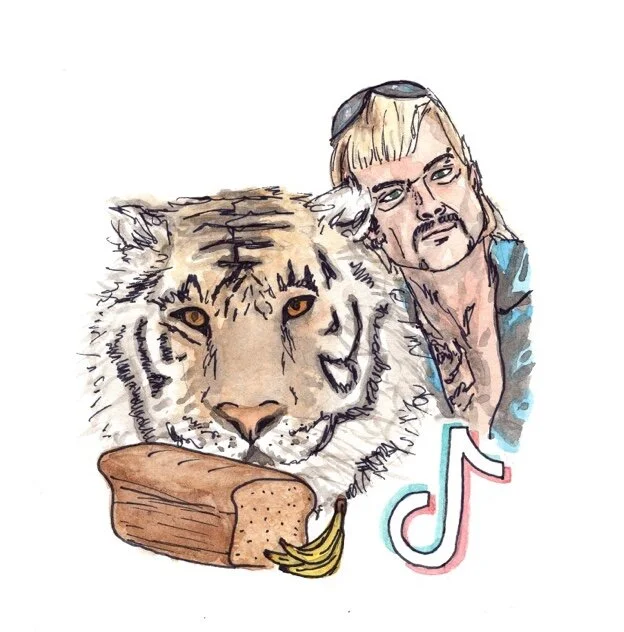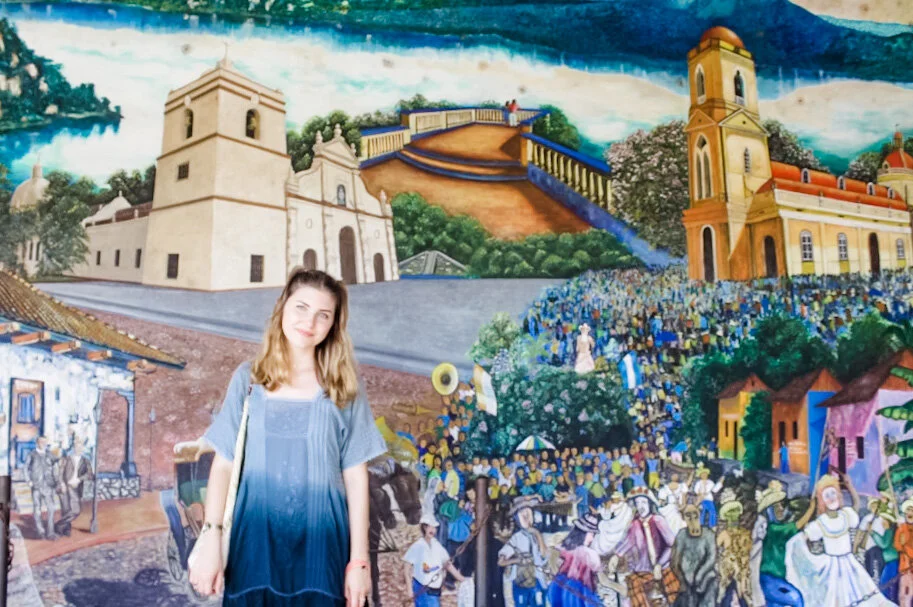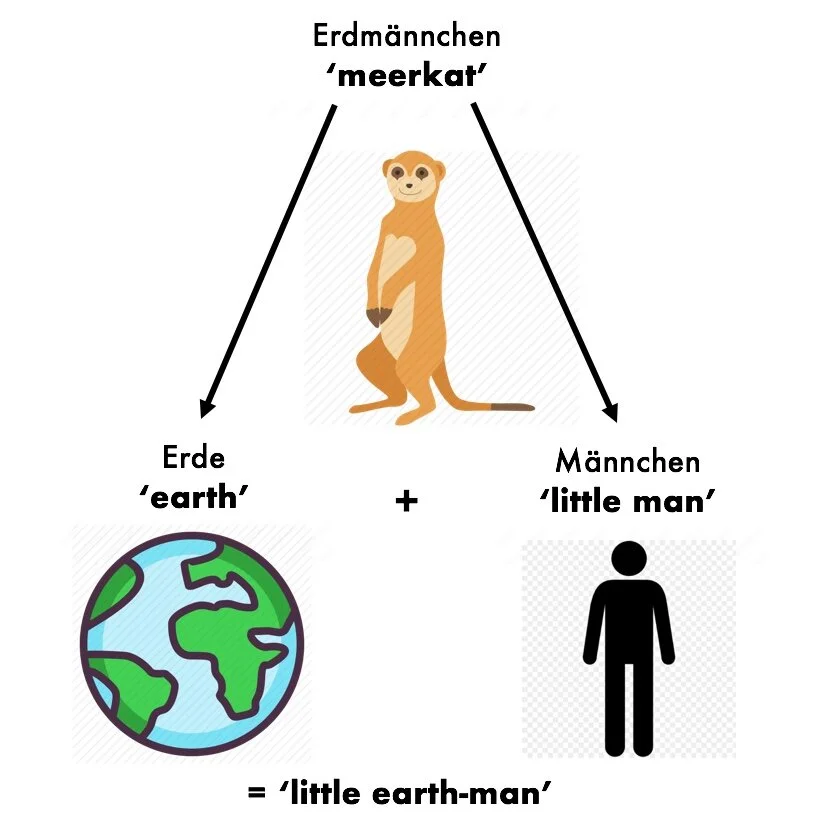Lisa's Story
Gyeongbok Palace (경복궁), my favorite palace. 📸: Lisa Jeon Ox.
Greetings everyone! 안녕하세요 여러분! 👋 My name is Lisa Jeon Ox (전악스리사), and like you, I was trying to become fluent in a language not too long ago. This is the story of my language-learning journey with Korean and how I became a linguist. Languages and linguistics have played a huge role in my life and are my two greatest passions today.
LEARNING TWO CODES
As a second-generation Korean-American, I grew up speaking Korean at home and English at school. My parents also enrolled me in Korean language classes to improve my vocabulary and grammar until I was in junior high school. I can’t say, however, that I truly cared for or paid much attention to my use of either of the languages I had used on a daily basis throughout my life. That is, until the summer of 2004...
That summer, for the first time, I sat across from my new stepfather at the dinner table and tried to make meaningful conversation. He had just arrived from Korea and didn’t know a word of English. As I gestured, pointed, and failed to remember phrases from my childhood and Korean language classes, I realized three things: first, communication was going to be a problem for the next few years; second, the years I’d spent listening to and memorizing Korean phrases in class had helped me to get by in a few social settings but had NOT prepared me to have a full and productive conversation with someone I truly wanted to get to know better; and third, my attitude toward communication was forever changed, and I could not think about words and language with the same naïveté or overconfidence again. I had crossed a threshold in my life journey, and I had taken my first step on the path toward becoming a linguist...
After the incident at the dinner table, I threw myself into language learning. My stepfather and I began a language exchange, teaching one another Korean and English a few times a week. I also enrolled in Korean language courses again -- but this time voluntarily and not parent-mandated-ly! During this time, I began to notice the richness and beauty of both languages and started to systematically analyze them in a way quite different from the way I perceived my classmates doing.
ADVENTURES IN KOREA, PART 1
At the end of that year, excited to investigate these burgeoning “noticings”, I decided to study abroad for a year in Seoul, Korea. There, I immersed myself in Korean language and culture while taking courses at Ewha Womans University (이화여자대학교). I had the good fortune of having a full scholarship and a fantastic Korean language professor, and my love for the subject grew from there.
At the same time, I also realized that I was still far from proficient in the language. My first experience in South Korea was marked by countless frustrating moments of not being able to express myself fully and many missed opportunities to absorb the culture completely. Because of this, I decided that my next adventure in South Korea would be different, and, upon returning to the United States, I got to work.
(RE-)DISCOVERING KOREAN AND LINGUISTICS (!)
I spent the next few years rediscovering and relearning Korean. Eventually, I noticed that by finding where in the mouth sounds were pronounced, and how they were pronounced, one could move from English to Korean vocabulary with relative ease. In my Korean class, I would point out these distinctions in the place and manner of producing certain sounds to struggling classmates to help them better approximate the native Korean pronunciation. The manipulation of these sounds spoke to me in a very deep way, and when I returned to the United States after studying abroad, in addition to changing my major to linguistics, I began to read as many books as I could about phonetics and phonology, language variation and change, and first and second language acquisition. In retrospect, I find it hard to believe that it wasn't until my junior year of college that I discovered that there was an area of study called “Linguistics”! With this epiphany, I experienced an immense feeling of delight in finding a discipline that could entirely encapsulate what I had felt—I had found a part of myself.
During the latter part of my undergraduate career, I delved more deeply into several subfields of linguistics by taking courses in sociolinguistics, syntax, morphology, semantics, historical linguistics, and language acquisition. These courses, the excellent professors I encountered, and an insatiable appetite for learning about all things language once again prompted me to go abroad and immerse myself in Korean.
ADVENTURES IN KOREA, PART 2
After graduating in 2010 with a BA in linguistics and a minor in speech-language pathology, I enrolled in a graduate program at Seoul National University (서울대학교), where I took graduate courses in international relations, linguistics, and advanced Korean. I also taught English at several academies.
I had always wanted to return to Korea to learn more about my ethnic heritage and to truly absorb the culture completely. What I didn’t know was that this second experience living there was about to change my life completely. Before my plane even landed, I had this overwhelming feeling that I was home. And once there, I fell in love with everything South Korea had to offer: the culture, the people, the sights, and the food (oh the food!). I also realized how much better my language skills had become. I finally felt like I was fluent in the language and speaking Korean felt as natural as speaking English. I could give directions to taxi drivers, order at restaurants, and carry out extended conversations with my Korean friends. I also found myself thinking and dreaming in Korean for the first time!
Since then, my trips to Korea have been filled with experiences that most people wish their whole lifetime to have. I have served as an interpreter for the Seoul G20 summit, surfed and skied with locals in the beautiful Gyeonsang-do province (where the recent Winter Olympics in PyeongChang was hosted), harvested my own batch of tea from the Boseong Green Tea Fields (보성녹차밭), and climbed the highest peak in the country (Hallasan 한라산) in Jeju Island. A deeper understanding of Korean language and culture has not only given me a greater appreciation of my cultural heritage and the opportunity to form special connections with many people, but it has also led me to discover a whole new side of myself that I deeply connect with -- my passion for languages and linguistics.
NEW OPPORTUNITIES & RESEARCH INTERESTS
When I returned to the U.S. after that trip, my knowledge of the Korean language and culture paved the way for many professional, academic, and personal opportunities. Perhaps one of the coolest opportunities was getting to serve as the Director of International Relations for the Greater Dallas Korean American Chamber of Commerce (달라스 한인 상공회의소). In this role, I had the opportunity to work closely with the Korean community in Dallas and to travel around to many different regions of South Korea as part of a trade mission delegation with the City of Dallas.
In my interactions with people from all around South Korea, I began to observe that there were significant differences in the ways that people around the country spoke. It seemed that wherever I traveled, I not only heard variations in speech, but I also heard people talking animatedly about those differences. People discussed the unusual or distinctive words and accents that they heard, and sometimes they even used these features to guess where the speaker was from. While discussions like these were normally light-hearted and innocent, some people were more than willing to use their linguistic perceptions to make judgments about who the person was, for good or bad.
Because of this exposure to linguistic variation in Korea—and its associated attitudes and beliefs—I realized that what we feel about language is also important to society for a number of reasons. Discovering that studying language could also help me to learn more about social organization, as well as about the remarkable resources of the human mind, was a turning point in my linguistics career. It could also help me examine a form of social stereotyping I was not even aware existed before.
These epiphanies were the catalyst for my Master’s thesis research, which examined people’s perceptions of how Korean is spoken in different regions using an approach that integrates language attitudes research, perceptual dialectology, and linguistic geography. The results of my research suggest that Koreans’ perceptions of dialect regions are not necessarily limited by administrative boundaries. In fact, the data not only reveal perceptions of dialect variation unassociated with geographic borders, but also tap into the way people connect ideas about language and place. This research also led me to work on a collaborative project with other linguists that examines perceptions of dialect variation in Texas.
I continued my study of linguistics as a PhD student at Rice University. There, I became further interested in investigating the connection between actual differences in speech (the production approach) and everyday perceptions of how people talk (the perception approach). Sometimes these two perspectives give the same information. However, sometimes they differ in very intriguing ways. In my Master’s thesis, I presented this interaction using the perception approach; and in my PhD dissertation, I presented this interaction using the production approach. Both approaches continue to be equally fascinating to me today.
TODAY & FUTURE GOALS
I have now been a language and linguistics teacher for more than a decade and have taught in universities and academies in the U.S., South Korea, and Mexico. I earned my PhD in linguistics in 2018, and in addition to designing and teaching language programs for universities and at LanGo Institute, I also coordinate language and culture courses for international students and teach linguistics courses at UNT and UTA.
By helping people learn a new language, I want to help them expand their horizons, deepen their connections with the rest of the world, and give them a whole new view of life. Speaking more than one language has allowed me to taste the fruits of encountering new people, discovering amazing places, and experiencing life in ways that only speaking one language could never have taken me. Because of this, it’s incredibly fulfilling for me to be a part of someone’s life-changing journey to discovering, learning, and speaking another language. My own study of Korean has afforded me tremendous opportunities for personal and professional growth and has led to many special connections and relationships.
Many of my students have become dear friends, and I love hearing about all of the wonderful things they’ve experienced and accomplished with language -- from using it to travel to new places in the world, to attaining academic or professional success, and to meeting lifelong friends or even their significant others (two of my former students met during one of my language and culture summer programs and today they’re married with a newborn baby!).
Naturally, my future goals are all about language. As a linguist, I continue to examine the complex relationship between language variation and change, and the social. My research focuses on the perception/production of linguistic variation and the links between language and place. I’m especially interested in the connections that link sounds with social meaning and methodological approaches for analyzing linguistic data with Geographic Information Systems (GIS).
For my work at universities and at LanGo, my goals are to design and teach language programs that incorporate knowledge about language science, linguistic variation and change, and how language reflects and shapes culture. I am also still curious to discover what other languages can teach me about others and myself, and am currently working on improving my Spanish and Mandarin Chinese skills. 이 채널 고정하세요! Estén pendiente de esta página! Qǐng jìxù guānkàn 請繼續觀看…
































Tools for helping you master some of the trickier points of German grammar, whether you’re learning it for the first time or wanting to review the fundamentals. Los geht’s!